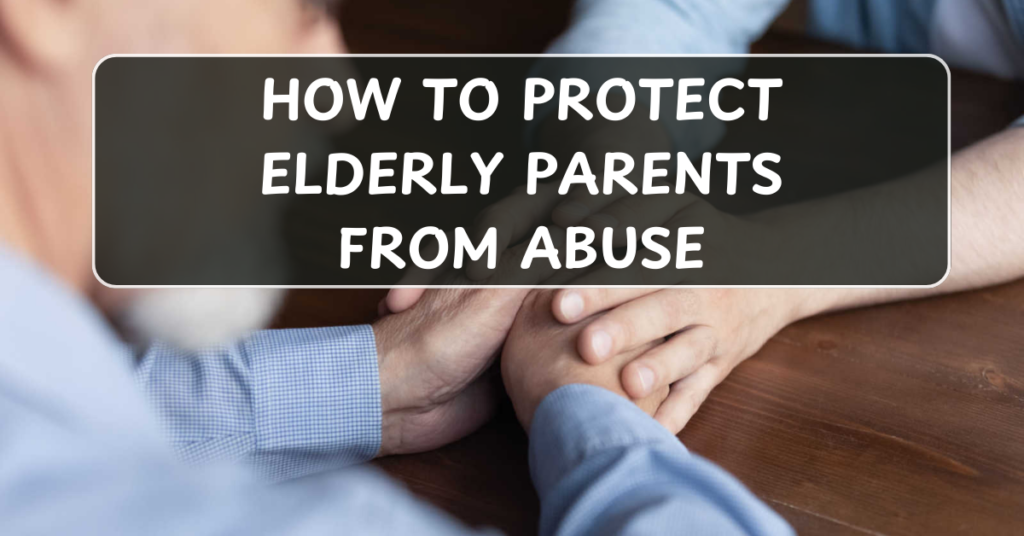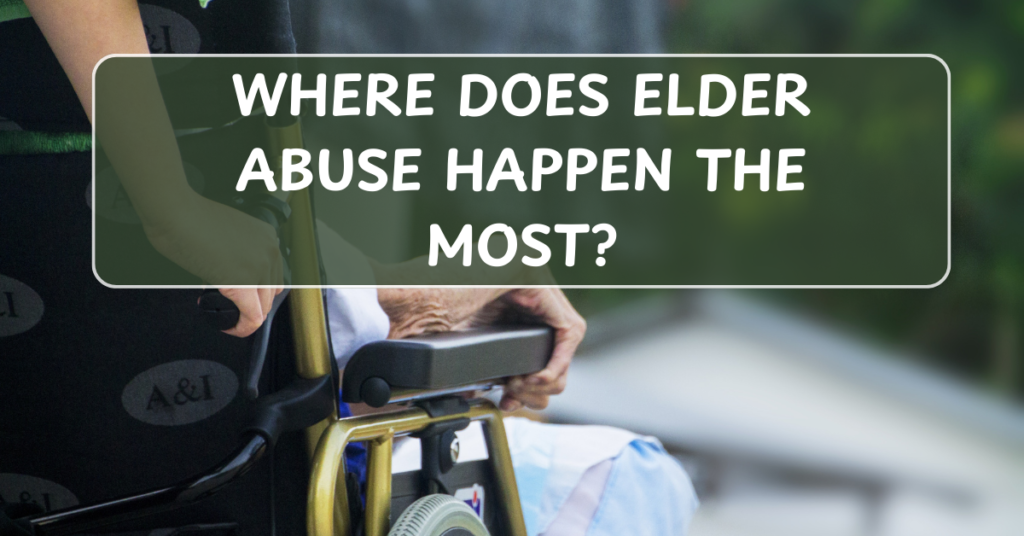
As our parents age, they may become more vulnerable to various forms of abuse, including physical, emotional, financial, and neglect. Protecting elderly parents from abuse is crucial to ensure their safety and dignity. In this article, we’ll explore practical steps you can take to safeguard your elderly parents, recognize the signs of abuse, and know where to turn for help if needed.
1. Understand the Types of Elder Abuse
Before you can effectively protect your elderly parents, it’s important to understand the different forms of abuse they may face. Elder abuse can take many forms:
- Physical Abuse: Involves causing physical harm or injury through hitting, slapping, or other forms of violence.
- Emotional or Psychological Abuse: Includes verbal insults, threats, or manipulation that cause emotional harm.
- Financial Abuse: Taking advantage of an elderly person’s finances by stealing money, forging signatures, or pressuring them into giving money or assets.
- Neglect: Failing to provide necessary care or attention, including inadequate food, clothing, shelter, or medical treatment.
- Sexual Abuse: Any non-consensual sexual contact or behavior.
- Self-Neglect: When elderly individuals fail to take care of themselves due to cognitive decline, physical limitations, or mental health issues.
Recognizing these types of abuse is essential in understanding the risks your elderly parents face.
2. Monitor and Maintain Regular Communication
One of the most effective ways to protect your elderly parents is by staying actively involved in their lives. Regular communication is crucial to ensure their well-being.
- Check-In Frequently: Call, text, or visit your parents regularly. Frequent communication helps you stay informed about their emotional and physical state, and it may allow you to spot potential issues before they escalate.
- Encourage Social Connections: Encourage your elderly parents to maintain social interactions with friends, family, and community groups. Loneliness can make them more susceptible to abuse.
- Stay Observant: Pay attention to any changes in behavior or health that might suggest they are being mistreated. Sudden withdrawal, anxiety, or bruises could be red flags.
3. Vet Caregivers and Home Care Services
If your parents require professional care, whether at home or in a facility, it’s important to carefully vet caregivers and service providers to ensure they are trustworthy and qualified.
- Background Checks: Before hiring a caregiver, conduct thorough background checks to verify their qualifications, experience, and criminal history. Consider using an agency that screens employees carefully.
- Get Recommendations: Ask for recommendations from friends, family, or healthcare professionals when selecting caregivers or home care services.
- Visit Regularly: If your parents are in a care facility or receiving in-home care, make frequent, unannounced visits to observe the quality of care they are receiving and interact with the caregivers.
- Training for Caregivers: Ensure caregivers understand how to treat elderly individuals with dignity, respect, and compassion. They should be trained in handling medical conditions and managing challenging behaviors, if applicable.
4. Set Up Legal Protections
Legal safeguards can provide additional protection for your elderly parents, especially when it comes to financial matters and decision-making.
- Power of Attorney: Set up a durable power of attorney (POA) so that someone you trust can make financial or medical decisions on behalf of your parents if they are no longer able to do so.
- Living Will or Advance Directive: Ensure your parents have a living will or advance directive that outlines their healthcare preferences in case of incapacity.
- Guard Against Financial Abuse: Monitor financial accounts regularly to watch for signs of fraud or misuse. Consider setting up safeguards like joint accounts or limiting access to bank accounts.
5. Educate Your Parents on Their Rights
It’s important to empower your elderly parents by educating them about their rights and how to identify and report abuse.
- Teach Them to Speak Up: Encourage your parents to speak up if they feel uncomfortable, threatened, or unsafe. Remind them that they have the right to refuse any form of abuse or mistreatment.
- Discuss Warning Signs: Educate them about the signs of abuse or neglect, so they can recognize it and take action. Let them know that they can reach out to you or another trusted person if they feel at risk.
- Know the Resources Available: Help your parents become familiar with local resources, such as elder advocacy organizations, legal services, and elder abuse hotlines. Ensure they know who to contact in an emergency.
6. Spot the Warning Signs of Abuse
It’s essential to stay vigilant for the warning signs of abuse or neglect, especially if your parents are unable to communicate their concerns directly.
Physical Signs
- Unexplained bruises, cuts, burns, or scars.
- Poor personal hygiene or signs of malnutrition.
- Untreated medical conditions or frequent hospital visits.
- Sudden weight loss or dehydration.
Behavioral Signs
- Withdrawal from social activities or family interactions.
- Fearfulness, anxiety, or depression.
- Confusion or disorientation.
- Lack of eye contact or avoidance of certain people.
Financial Signs
- Unexplained withdrawals from bank accounts.
- Missing or unexplained bills or valuables.
- Sudden changes in wills or financial documents.
If you notice any of these signs, take immediate action by investigating further and seeking professional help if necessary.
7. Report Suspected Abuse Immediately
If you suspect that your elderly parents are being abused or neglected, it’s important to take immediate action. Reporting the abuse can prevent further harm and ensure that the abuser is held accountable.
- Contact Adult Protective Services (APS): Each state has an APS agency that investigates allegations of elder abuse and provides services to protect vulnerable adults.
- Report to Law Enforcement: If you believe that your parents are in immediate danger, contact local law enforcement right away.
- Involve Healthcare Providers: If your parents are seeing doctors or other healthcare professionals, inform them about your concerns. They may be able to provide additional support and help with the investigation.
8. Consider Alternative Living Arrangements
If your parents are in an unsafe living situation, consider alternative living arrangements where they can receive the proper care and attention they need.
- In-Home Care: If your parents prefer to remain at home, hiring a reputable in-home caregiver may provide the support they need.
- Assisted Living: If your parents require more specialized care, an assisted living facility may be a better option, where staff can monitor their well-being and provide daily support.
- Nursing Homes: For more intensive medical care, nursing homes may be necessary. Ensure the facility is reputable, licensed, and follows safety protocols.
Conclusion: Protecting Your Elderly Parents
Protecting elderly parents from abuse requires vigilance, knowledge, and proactive involvement. By understanding the risks, maintaining open communication, vetting caregivers, and knowing how to spot the warning signs, you can ensure that your parents are safe and well-cared for. Remember, abuse can happen to anyone, but with the right measures in place, you can help prevent it and provide your parents with the love, respect, and care they deserve in their later years.


